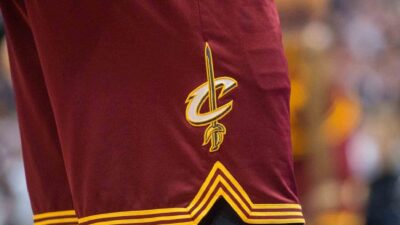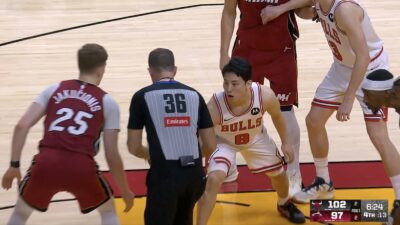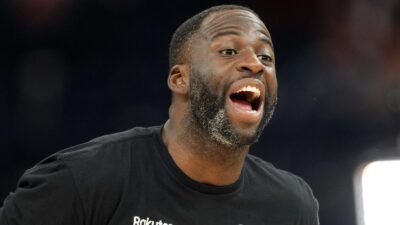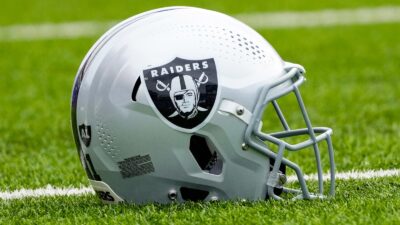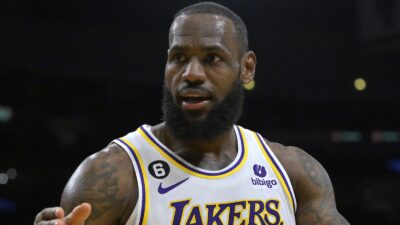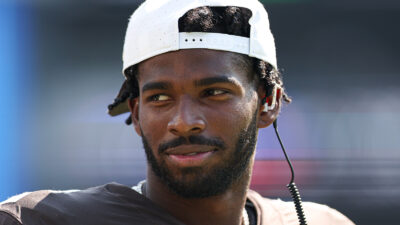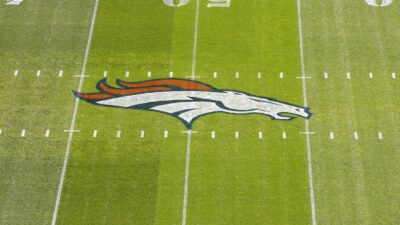 The NBA began its lockout Friday morning at 12:01 a.m. to great fanfare and widespread acclaim. Just kidding. Everybody hates it.
The NBA began its lockout Friday morning at 12:01 a.m. to great fanfare and widespread acclaim. Just kidding. Everybody hates it.
And rightfully so.
Lockouts are never fun, but this one in particular couldn’t have come at a worse time. Not only was the 2011 Finals the most compelling NBA championship of the past 10 years, it was also the highest rated championship series since 2004. Fans haven’t been this interested in the NBA since Shaq was in his prime and Kobe had a mini afro. Yes, kids. It’s true. Kobe once had hair like Buckwheat.
Even the 2011 draft, one of the weakest and least entertaining drafts in recent memory, earned excellent ratings. Sure, 22 of 30 NBA were reportedly losing money, but the league as a whole was peaking like Lil Wayne on Tha Carter III. Popularity-wise, everything was going its way.
All that ended Friday at midnight plus one.
Ninety-nine point nine percent of people lose during a lockout — everybody, it seems, but college basketball coaches and personal trainers. It’s like going to prison. You don’t want to go there. Your family doesn’t want you there. The state doesn’t want you there. And taxpayers don’t want to pay to keep you there. It’s a lose-lose-lose-lose situation.
I know lockouts are supposed to be productive in the long run (look how many franchise-crippling contracts the NBA was able to eliminate in the wake of the 1998 lockout), but this one is going to be especially brutal in the short term. It’s going to kill all the momentum David Stern and Co. had moving into the 10s (or whatever you call 2010-19).
The drama surrounding LeBron James and the Miami Heat, Dirk Nowitzki’s re-birth as a superstar, the Knicks rising from the ashes, the Derrick Rose renaissance in Chicago. All of those subplots go away if there’s no season. In the NBA, the players are the stars of the show but the games provide the backdrop for their heroics. No games, no context. No context, no interest.
Ask anyone with information and access to a keyboard. There’s a very real chance the NBA will not have a season next year. The players and owners seemed close to reaching an agreement last week. Now everyone from Michael Wilbon to Adrian Wojnarowski is talking like there’s no hope, like it’s a Cormac McCarthy novel or something.
The worst part is that both sides know this lockout is bad for them. The players want to play and get paid. The owners want to make money and ride this recent wave of interest. A lockout achieves none of those goals, still they can’t bring themselves to swallow their pride and acquiesce.
As a result, everyone is going to suffer.
The fans suffer because there are no games to watch, no free agency moves to discuss and no trade rumors to keep them occupied for hours at work on ESPN.com’s Trade Machine. They can’t even visit the NBA’s official website anymore or watch games that took place in the last 17 years. Out of spite, the league shut down NBA.com and stopped airing games that happened after 1994, the year the oldest current players (Grant Hill, Jason Kidd, etc.) entered the league.
This is dumb for a number of reasons: 1) you’re going to make the fans upset, 2) you don’t get the ad revenue from traffic to the webpage, and 3) people are just going to go elsewhere for the same information. Once a new collective bargaining agreement is reached, the league is going to have work three times as hard to build the same readership it once had. And for what? To punk the players? That’s ridiculous.
The NFL has been locked out for months, but at least they had the decency to maintain their website and their cable network. Their fans may not get to see team workouts but at least they get the benefit of features like the ongoing top 100 players list. As a result, NFL will have a steady readership when the league returns.
The NBA, on the other hand, won’t. It may as well have said to its fans, We care more about sticking it to the players than taking care of you. You can go ahead and surf ESPN.com. How less traffic to webpages is supposed to hurt the players, I’m not sure. But I do know it’s going to hurt both fans and the league in the long run.
The players are obviously going to suffer as well. Not only will they (most likely) not get to play games next season, they also won’t get paid, leading to tough decisions like Which house should I pay the mortgage on this month? and What should replace Cristal as my lockout beverage of choice?
Jokes aside, it’s going to be an adjustment. Especially when you take into account the potential falling outs between players and the team officials who are mandated not to speak with them under any circumstance. If you’re wondering why that’s a problem, think about Tracy Jordan on 30 Rock. Then picture him trying to function without Kenneth.
A lot of NBA players are friendly with clubhouse guys and team officials. As Sam Amick wrote Thursday, it’ll be interesting to see if those friendships can stand the tension of months non-interaction and forced avoidance.
Finally, the owners will suffer because their product is going to lose value and their “assets” may or may not be as equitable when the next season starts. What do I mean by “assets”? The players. There’s a good chance some of the best ones will get fat and lazy in the months of lockout-induced coma.
Remember Shawn Kemp after the ’98 lockout? He was a 300-pound train wreck. Do you really want to take that chance with this generation of guys?
Zach Randolph is a finite number of fast food binges away from irrelevancy. What that number is I’m not sure. But it’s under 10. And I’m guaranteeing you Z-Bo’s lockout diet will include more fried chicken than fried zucchini. He’ll be hitting up Mickey D’s every day like it’s his son’s birthday.
In other words, Michael Heisley can kiss $66 million goodbye.
On top of that, every game missed is a missed opportunity to bring in dollars. Who knows will happen with television contracts and ticket sales in the aftermath of a missed season. It took an estimated six years for the league to get to where it was, pre-1998, after the last lockout. How many years will it take this time? Two or three at the least, right?
That’s two or three years of prime earning potential. Do the owners really want to give that up?
Does Jerry Buss really want to give up a year of Kobe Bryant as his career is winding to a close? Ditto Peter Holt and Tim Duncan, Mark Cuban and Dirk Nowitzki?
I realize Buss and Cuban aren’t the owners making waves (they don’t need the money like small market teams do), but is it really worth it to that group as a whole to waste momentum in the name of a flex cap or a 7 percent increase in revenue (I doubt the owners will get the 60-40 revenue split they’re asking for)?
Won’t they just be losing more money in the long run trying to reassemble everything? To get back to where they were in June 2011?
These are the questions that make me wonder how it’s possible for a lockout to be beneficial for the NBA, a league on the cusp of returning to greatness. It seems that the owners, players, executives, officials and team employees are all in the same boat: a sinking one.
Unfortunately, everybody’s too busy arguing about minutiae to bail the water out.


